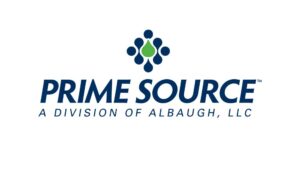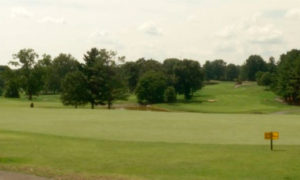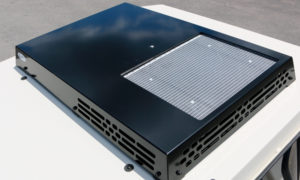Golf courses are an investment. A regular day can include manicuring greens, maintaining equipment, and providing clubhouse services.
But what if those characteristics—or your services altogether—were disrupted?
Unfortunately, risks are a reality facing every golf course—even the most careful ones. And when a risk becomes an accident, it can threaten the years you’ve spent building a successful business. Fortunately, insurance is one of the most cost-effective ways you can protect your golf course and investment. But where do you start?
Having worked in the insurance space for over 30 years, I’ve received various questions. Do businesses like golf courses really need insurance? If so, what types of coverage? I understand; golf course insurance can feel overwhelming. This article will help you find answers to some of those questions and help you understand what to look for.
Understanding your insurance options
One quick search for business insurance can result in pages of information and unfamiliar terms. Don’t let the initial results discourage you.
In most cases, I often recommend starting with some combination of general golf course liability insurance and golf course insurance. This can help simplify the insurance buying process, while protecting your business from various risks. Your state may also require workers’ compensation and commercial auto insurance if you have employees or rely on company vehicles.
For this article, I’ll focus on property and general golf course liability insurance To help you get started, here’s a closer look at some common coverages for golf courses, and what they mean.
Commercial property insurance
Your golf course faces a unique risk compared to most industries: nearly every asset is exposed to the elements.
Whether severe weather damages your course, or a vandal targets your business, commercial property insurance can help pay for the repair and replacement costs.
What types of commercial property coverage should you consider?
- Golf course grounds coverage: Often described as tee to green coverage, this form of golf course property insurance can help pay for damages to your tee boxes, fairways, and greens. It’s one of the few ways you can help preserve the qualities that your guests enjoy.
- Trees, shrubs, and plant coverage: Much like greens and fairways, the trees and shrubs that make up your course’s layout could suffer damage from severe weather, fire, or vandalism. When they do, it could alter the playing experience for your guests. Not only can tree, shrub, and plant coverage help you pay for replacement costs, but your policy may allow you to protect a specific tree, plant, or landmark unique to your property.
- Personal property of members or guests: Every superintendent wants to provide guests with a first-class experience. But sometimes accidents happen, and if a visitor’s personal property is damaged while it’s located on your premises, your course could be responsible for the associated costs. This type of property coverage can help you pay for those expenses.
- Errant ball coverage: Fore! Odds are your course welcomes golfers of varying skill levels. And even the best golfers hit a wandering shot. So, who is responsible if a stray ball causes property damage or an injury? In some cases, it could be your business, which is why errant ball coverage is worth considering in your property policy.
- Equipment breakdown coverage: Almost every aspect of your golf course relies on specialized equipment. Don’t let a broken mower or seeder take away from the quality of your course. Equipment breakdown coverage can help pay for the costs associated with repairing or replacing your equipment.
- Fine arts coverage: Golf is a game rich with history, and your course may display its own heritage through artwork, galleries, and collectibles. If it does, check whether fine arts coverage is included in your commercial property policy or if you can add it separately.
General golf course liability insurance
The same services that attract guests to your business can also pose risks to others and their property. Every service, from the golf lessons you offer to the drinks you serve, could result in damage or injury.
General liability insurance can help protect your course from a wide variety of these risks by covering medical costs, legal expenses, and related damages listed in your policy.
What types of golf course liability insurance coverage should you consider?
- Liquor liability coverage: While alcohol can provide a significant source of revenue for your course, it can also create substantial risk if a guest becomes intoxicated. If your staff serves an intoxicated visitor, that individual may cause property damage or bodily injury. In some cases, your course may be liable for that damage. Liquor liability coverage can help your business cover the costs of legal expenses or damages associated with a potential claim.
- Pesticide, herbicide, and fertilizer application coverage: Sometimes, your greens, tees, and fairways need an extra boost to maintain their appearance. While pesticides and herbicides can help, they may cause unexpected damage. Pesticide, herbicide, and fertilizer application coverage can help protect your course from risks like personal harm, environmental hazards, or damage to nearby property.
- Golf or tennis pro professional liability: Your course may offer multiple services to guests, including lessons. Golf or tennis pro professional liability—often referred to as golf instructor coverage—helps protect your business if lessons lead to negligent acts, errors, or injuries.
- Premises and operations liability: The average 18-hole golf course covers 150 acres, according to the Golf Course Superintendents Association of America (GCSAA). With so much property for your guests to enjoy, accidents like slips, trips, and falls may happen on your course. Premises and operations liability coverage helps protect your business if injuries or property damage occur due to your premises.
- Cyber liability and data breach response: Your course likely stores sensitive information online. Hackers tend to target everything from personal data to financial information—and if a cyberattack happens—the result could be costly. Cyber liability coverage can help pay for legal expenses, communication costs to affected individuals, and computer specialists.
The takeaway
If there’s one lesson you leave with, I hope it’s this: don’t wait. The cost of waiting to protect your golf course and livelihood could be significant. If you have questions, you can reach out to me, our team, or an independent agent in your area. Just don’t let uncertainty delay you from financially protecting your course. Odds are, someone has asked similar questions, and an insurer or agent can help you find an answer.
That said, I hope this article helps you get a head start. Before adjusting your coverage, talk with a local expert to discuss your business’s current policy. It’s never too early to evaluate your risks and discuss how you can protect your course. Golf course insurance is only one aspect of running a business, but a necessary one. Take care, and don’t hesitate to reach out if you have questions.

Mike Schimke is the chief underwriting officer for Sentry Insurance. Sentry provides insurance, risk management, and retirement services to golf courses. Learn more at sentry.com.



























